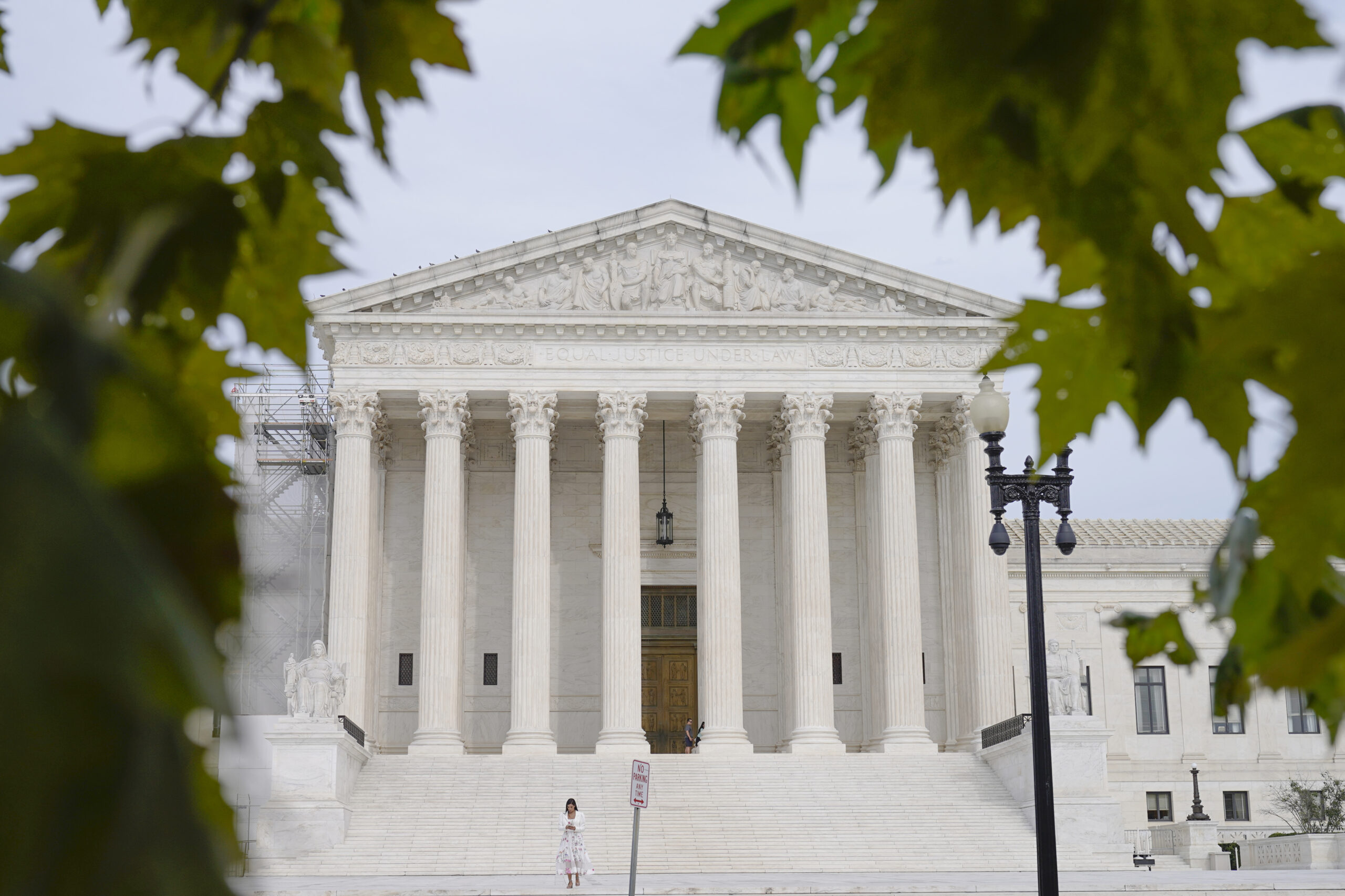The Supreme Court seems a bit quieter than in recent years, as the justices begin a new term.
Major cases await, as they always do, including several challenges to regulatory agencies and efforts to regulate social media platforms.
But nothing yet seems on par with conservative-driven decisions overturning Roe v. Wade’s right to an abortion and expanding gun rights in June 2022, then ending affirmative action in higher education and killing the Biden administration’s student loan forgiveness plan last June.
That could change, especially if issues related to the prosecution of former President Donald Trump or efforts to keep him off the ballot in some states reach the justices.
Ethical issues also are hovering over the court, with the possibility that the justices could adopt a first-ever code of conduct. But it’s unclear when that might happen.
Some things to know about the Supreme Court’s new term:
GUNS AND ABORTION, REDUX
The justices’ decision in June 2022 on guns altered how courts are supposed to evaluate restrictions on firearms. Since then, a federal law aimed at keeping guns away from people facing domestic violence restraining orders has been struck down by a lower court. The Biden administration appealed and the justices have set arguments for November.
Abortion isn’t yet on the calendar, but is likely to be added later in the fall when the court considers the administration’s appeal of lower-court rulings that would impose restrictions on mifepristone, a medication used in the most common method of abortion in the United States.
5TH CIRCUIT
The federal appeals court in New Orleans is keeping the Supreme Court busy. Both the mifepristone and guns cases come from that conservative-dominated court, the 5th U.S. Circuit Court of Appeals.
The appeals court also has issued rulings that would severely hamper the operations of the Consumer Financial Protection Bureau and restrict Securities and Exchange Commission actions against securities fraud. What’s more, the 5th Circuit upheld the Texas social media law the court will take up.
A SUPREME COURT ETHICS CODE?
The highest court in the land should have the highest ethical standards, Chief Justice John Roberts has said. But the Supreme Court stands alone among judges in not being bound by a code of ethics.
The issue has vexed the justices for several months, over a series of stories questioning the ethical practices of the justices. Many of those stories focused on Justice Clarence Thomas and his failure to disclose travel and other financial ties with wealthy conservative donors, including Harlan Crow and the Koch brothers. But Justices Samuel Alito and Sonia Sotomayor also have been under scrutiny.
There are signs the court could adopt an ethics code, but it’s not clear when. The justices were discussing the possibility as far back as 2019, and Justice Brett Kavanaugh recently said he hoped “concrete steps” would be taken soon. In Supreme Court time, soon could mean months or longer.
Justice Elana Kagan is the only other justice speaking positively about an ethics code. But Kagan said unspecified hang-ups remain.
“There are, you know, totally good-faith disagreements or concerns, if you will. There are some things to be worked out. I hope we can get them worked out,” she said during a visit to the University of Notre Dame.
TRUMP FACTOR
There seems to be no end to cases involving the former president. The court already has agreed to hear a case in which a man tried to trademark a phrase mocking Trump as “too small.”
Bigger controversies could be headed the court’s way. Federal judges are weighing various appeals related to the prosecution of Trump in federal courts in Washington and Florida, and state courts in Georgia and New York. It’s by no means certain the court will be asked to weigh in, but it’s also not out of the question.
With Trump again seeking the Republican presidential nomination, lawsuits have been filed in several states to keep him off the ballot under a rarely used, post-Civil War constitutional provision that disqualifies candidates who have supported an “insurrection or rebellion.”
The Supreme Court has never ruled on the insurrection clause, but if a state court invokes it to kick Trump off the ballot, the justices seem likely to get involved. The Supreme Court almost always wants the last word in deciding what a provision of the Constitution means.
Election law expert Richard Hasen says the justices should intervene, and soon, because it’s important that everyone knows what the rules are, regardless of how the case comes out.
(AP)











